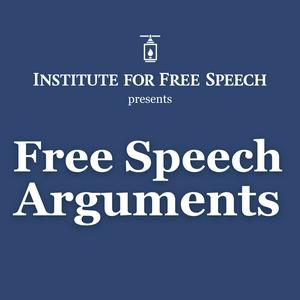January 30, 2026 marks the 50th anniversary of Buckley v. Valeo, a landmark First Amendment speech clause case. While the podcast normally airs current oral arguments, we thought that it would be interesting to spotlight the oral arguments in this landmark case during month of its anniversary.
Episode 44: Buckley v. Valeo
James L. Buckley, et al. v. Francis R. Valeo, Secretary of the United States Senate, et al. argued before the Supreme Court of the United States on November 10, 1975 and decided on January 30, 1976. Argued by Ralph K. Winter, Joel M. Gora, Brice M. Claggett, and (on behalf of James L. Buckley) and Daniel M. Friedman, Archibald Cox, Lloyd N. Cutler, and Ralph S. Spritzer (on behalf of Francis R. Valeo).
Case Background [from the Federal Election Commission]:
On January 2, 1975, the suit was filed in the U.S. District Court for the District of Columbia by Senator James L. Buckley of New York, Eugene McCarthy, Presidential candidate and former Senator from Minnesota, and several others. The defendants included Francis R. Valeo, Secretary of the Senate and Ex officio member of the newly formed Federal Election Commission, and the Commission itself. The plaintiffs charged that the Federal Election Campaign Act (FECA), under which the Commission was formed, and the Presidential Election Campaign Fund Act were unconstitutional on a number of grounds.
On January 24, 1975, pursuant to Section 437h(a) of the FECA, the district court certified the constitutional questions in the case to the U.S. Court of Appeals for the District of Columbia Circuit. On August 15, 1975, the appeals court rendered a decision upholding almost all of the substantive provisions of the FECA with respect to contributions, expenditures and disclosure. The court also sustained the constitutionality of the method of appointing the Commission.
On September 19, 1975, the plaintiffs filed an appeal with the Supreme Court, which reached its decision on January 30, 1976.
Questions Presented, from the Appellants' Brief:
1. Did the Court of Appeals correctly conclude that the limitations imposed by FECA on expenditures by political candidates and organizations are constitutional?
2. Did the Court of Appeals correctly conclude that the limitation imposed by FECA on expenditures by any person relative to a clearly identified candidate are constitutional?
3. Did the Court of Appeals correctly conclude that the limitations imposed by FECA on contributions to political candidates and organizations are constitutional?
4. Did the Court of Appeals correctly conclude that the disclosure requirements imposed on political candidates, organizations and individuals by FECA are constitutional?
5. Did the courts below correctly conclude that the public financing provisions of FECA and Subtitle H of the Internal Revenue Code are constitutional?
6. Did the Court of Appeals correctly conclude that the method provided by FECA for appointing members of the Federal Election Commission is constitutional?
7. Did the Court of Appeals properly decline to decide whether certain powers conferred upon the Federal Election Commission by FECA are constitutional?
8. Are the powers conferred upon the Federal Election Commission by FECA constitutional?
Resources:
Supreme Court Opinion
Institute for Free Speech Analysis
C-SPAN Buckley v. Valeo Panel 1
C-SPAN Buckley v. Valeo Panel 2
C-SPAN Buckley v. Valeo Panel 3
The Institute for Free Speech promotes and defends the political speech rights to freely speak, assemble, publish, and petition the government guaranteed by the First Amendment. If you’re enjoying the Free Speech Arguments podcast, please subscribe and leave a review on your preferred podcast platform. To support the Institute’s mission or inquire about legal assistance, please visit our website: www.ifs.org


